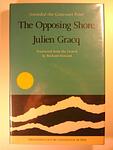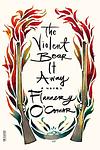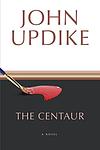The Greatest "Allegorical, Psychological, Fiction" Books Since 1950
Click to learn how this list is calculated.
This list represents a comprehensive and trusted collection of the greatest books. Developed through a specialized algorithm, it brings together 300 'best of' book lists to form a definitive guide to the world's most acclaimed books. For those interested in how these books are chosen, additional details can be found on the rankings page.
Genres
Allegorical books are a genre of literature that use symbolic characters, events, and settings to convey a deeper meaning or message. These stories often have a moral or philosophical lesson that is meant to be interpreted by the reader. Allegories can be found in many different types of literature, including novels, short stories, and poetry. They are a powerful tool for exploring complex ideas and emotions, and can be used to comment on social, political, or religious issues. Overall, allegorical books are a thought-provoking and engaging genre that challenges readers to think critically and reflect on the world around them.
The Psychological genre of books typically explores the inner workings of the human mind and emotions, often delving into complex and sometimes disturbing psychological states. These books may focus on mental illness, trauma, relationships, or personal growth, and often challenge readers to confront their own beliefs and perceptions. Psychological books may be suspenseful, thought-provoking, and emotionally intense, offering readers a deep and often unsettling glimpse into the human psyche.
Countries
Date Range
Reading Statistics
Click the button below to see how many of these books you've read!
Download
If you're interested in downloading this list as a CSV file for use in a spreadsheet application, you can easily do so by clicking the button below. Please note that to ensure a manageable file size and faster download, the CSV will include details for only the first 500 books.
Download-
1. Invisible Man by Ralph Ellison
The novel is a poignant exploration of a young African-American man's journey through life, where he grapples with issues of race, identity, and individuality in mid-20th-century America. The protagonist, who remains unnamed throughout the story, considers himself socially invisible due to his race. The narrative follows his experiences from the South to the North, from being a student to a worker, and his involvement in the Brotherhood, a political organization. The book is a profound critique of societal norms and racial prejudice, highlighting the protagonist's struggle to assert his identity in a world that refuses to see him.
-
2. Lord of the Flies by William Golding
A group of British boys are stranded on an uninhabited island after their plane crashes during wartime. Initially, they attempt to establish order, creating rules and electing a leader. However, as time passes, their civility erodes, and they descend into savagery and chaos. The struggle for power intensifies, leading to violence and death. The novel explores themes of innocence, the inherent evil in mankind, and the thin veneer of civilization.
-
3. A Clockwork Orange by Anthony Burgess
This novel follows the life of a violent young man named Alex, who is part of a youth subculture in a dystopian future England. Alex and his gang engage in a nightmarish spree of rape, assault, and robbery, until he is arrested and subjected to a psychological experiment by the government to "cure" him of his violent tendencies. The novel explores themes of free will, morality, and the nature of evil, while using a unique slang language invented by the author.
-
4. One Flew Over the Cuckoo's Nest by Ken Kesey
Set in a psychiatric hospital in Oregon, the novel is narrated by a half-Native American patient known as Chief Bromden, who pretends to be deaf and mute. The story follows the arrival of a new patient, a boisterous, rebellious man who challenges the oppressive and dehumanizing system of the hospital, particularly the tyrannical Nurse Ratched. The book explores themes of individuality, rebellion, and the misuse of power, ultimately leading to a tragic conclusion.
-
5. Molloy by Samuel Beckett
"Molloy" is a complex and enigmatic novel that follows the journey of its eponymous character, an elderly, disabled vagabond, who is tasked with finding and killing a certain person. The narrative is split into two parts: the first is told from Molloy's perspective as he navigates his way through a strange and often hostile world, while the second follows a detective named Moran who is assigned to find Molloy. The novel is renowned for its challenging narrative structure, its bleak and absurdist humor, and its profound exploration of themes such as identity, existence, and the human condition.
-
6. Waiting for the Barbarians by J M Coetzee
The novel is set in a small frontier town of an unnamed empire, where the magistrate lives a life of civil service and relative peace. His world is disrupted when the Empire declares a state of emergency due to rumors of barbarian uprising. The magistrate becomes a critic of the Empire's brutal and inhumane methods of dealing with the perceived threat, which leads to his arrest and torture. As he tries to understand his role in the vast political machinery, he also grapples with questions of power, justice, and humanity.
-
7. The Fall by Albert Camus
The novel is narrated by a successful Parisian lawyer who has moved to Amsterdam after a crisis of conscience. He confesses his past misdeeds and moral failings to a stranger in a bar, revealing his growing self-loathing and disillusionment with the hypocrisy and shallowness of his former life. His confessions are a reflection on guilt, innocence, and the nature of human existence. The protagonist's fall from grace serves as a critique of modern society's moral failings and the individual's struggle with guilt and redemption.
-
8. Life & Times of Michael K by J M Coetzee
Set in South Africa during a civil war, the novel follows the journey of Michael K, a simple gardener with a cleft lip. When his mother falls ill, he attempts to take her back to her rural birthplace. After she dies en route, Michael continues the journey alone, struggling to survive in a war-torn landscape, while also being caught up in the bureaucratic red tape of the dystopian society. The story explores themes of freedom, survival, and the human spirit's resilience against adversity.
-
9. The Passion According to G.H. by Clarice Lispector
"The Passion According to G.H." is a philosophical novel that delves into the existential crisis of a wealthy Brazilian woman who, after killing a cockroach in her maid's room, experiences a profound metaphysical crisis. The narrative unfolds as a stream of consciousness that explores themes of identity, existence, and the nature of reality. The protagonist's journey forces her to confront her own humanity, the concept of nothingness, and the chaotic, interconnected nature of life. It's a profound and introspective exploration of the human condition and the meaning of existence.
-
10. Children of Gebelawi by Naguib Mahfouz
"Children of Gebelawi" is a novel that allegorically presents the stories of Moses, Jesus, and Mohammed through the lives of characters in a Cairo neighborhood. The patriarch, Gebelawi, has five children, each representing a different prophet or religious figure, and their struggles mirror the religious and philosophical conflicts of the 20th century. The book explores themes of power, faith, and redemption, and it sparked controversy upon publication due to its portrayal of sacred figures.
-
11. Everything That Rises Must Converge by Flannery O'Connor
"Everything That Rises Must Converge" is a collection of nine short stories that explore themes of racial tension, family dynamics, and morality in the mid-20th century American South. The stories delve into the psyche of various characters, most of whom are grappling with the changing social and racial landscape of the time. The narratives often reveal the characters' inherent prejudices and their struggle to reconcile their beliefs with the evolving world around them.
-
12. The Painted Bird by Jerzy Kosinski
"The Painted Bird" is a dark and harrowing novel set in Eastern Europe during World War II. The story follows a young, unnamed boy of unknown ethnicity who is sent by his parents to live in a remote village for safety. However, he is instead subjected to brutal violence, abuse, and superstition by the superstitious peasants. The book explores themes of survival, human cruelty, and the loss of innocence in the face of war and hatred.
-
13. The Opposing Shore by Julien Gracq
The book is a captivating tale of a young military officer who is posted to a remote coastal fortress in an imaginary Mediterranean country. As he awaits a long-anticipated enemy invasion, he finds himself drawn into the local customs and intrigued by the enigmatic presence of the enemy on the opposing shore. The narrative delves into themes of waiting, the passage of time, and the psychological impact of imagined threats, all set against a backdrop of political and military tension.
-
14. The Violent Bear It Away by Flannery O'Connor
The novel revolves around a young boy, Francis Tarwater, raised by his religious fanatic great-uncle in the backwoods of the American South. After his uncle's death, he is torn between following his uncle's wish for him to become a prophet, and the allure of a more conventional life presented by his educated uncle, Rayber. The story is a deep exploration of religious extremism, the struggle between free will and destiny, and the power of prophecy.
-
15. The Autumn of the Patriarch by Gabriel García Márquez
The novel explores the life of an eternal dictator who has ruled over a Caribbean nation for several decades. The patriarch's oppressive regime is marked by corruption, violence, and absurdity, while his personal life is characterized by loneliness and paranoia. The narrative is a complex, non-linear exploration of power, time, and the dehumanizing effects of political tyranny. The patriarch's death prompts a reflection on his life and reign, revealing a mythical, magical, and horrifying reality.
-
16. Grendel by John Gardner
"Grendel" is a thought-provoking novel that retells the epic Beowulf from the perspective of the monster, Grendel. The book explores themes of existentialism, morality, and the nature of humanity as Grendel navigates his lonely existence and interacts with various characters, including the heroic Beowulf. Through his introspective musings, Grendel challenges traditional notions of good and evil, ultimately questioning the purpose and meaning of life.
-
17. The Box Man by Kobo Abé
"The Box Man" is a surreal narrative about a man who chooses to live as a homeless individual, inside a box, in Tokyo. The protagonist, a former doctor, narrates his experiences and observations from within the box, and the narrative often blurs the line between reality and hallucination. The book is a philosophical exploration of identity, anonymity, and the nature of existence, challenging the reader's perception of what it means to be an individual in society.
-
18. The Clay Machine-gun by Victor Pelevin
"The Clay Machine-gun" is a surreal and complex novel that explores the nature of reality and illusion. The story is set in post-Soviet Russia and follows a protagonist who has multiple identities, including a poet in 19th-century Russia, a 20th-century psychiatric patient, and a 21st-century advertising executive. The narrative moves between these identities and realities, blurring the lines between them and creating a layered and philosophical exploration of Russian society, identity, and the human psyche.
-
19. Death and the Dervish by Meša Selimović
In "Death and the Dervish", the protagonist is a dervish in the 18th century Ottoman Empire, who embarks on a mission to find his imprisoned brother. As he navigates through the complex and corrupt bureaucracy, he grapples with questions of morality, justice, and the nature of power. The story explores themes of existentialism and the struggle for meaning in a world marked by suffering and injustice.
-
20. A Fable by William Faulkner
This novel is a World War I allegory where a Christ-like figure emerges within a French regiment, sparking a mutiny. The figure, a corporal, persuades his squadron to not attack in the bloody conflict, leading to their court-martial and execution. The narrative explores themes of war, morality, and the human spirit, with the corporal's actions causing a ripple effect, impacting the lives of soldiers, officers, and even a Jesuit priest.
-
21. Briefing For A Descent Into Hell by Doris Lessing
In this novel, a man found wandering the streets of London with no memory is admitted to a psychiatric hospital, where doctors attempt to diagnose and treat his condition. As he remains in a comatose state, the narrative delves into his complex inner world, blending reality with fantastical visions. Through his journey, the book explores themes of identity, the human psyche, and the boundaries between sanity and madness. The narrative challenges the conventional understanding of mental illness and the nature of reality, inviting readers to question the structures of society and the mind.
-
22. The Woman in the Dunes by Kobo Abe
This novel tells the story of a schoolteacher and amateur entomologist who travels to a remote seaside village to collect insects. He is tricked into staying the night in a house at the bottom of a sand pit with a mysterious woman, who spends her days shoveling back the ever-encroaching sand. As the days pass, the man realizes he has been trapped and is forced to help the woman with her endless task, leading to a strange and consuming relationship filled with existential dread and fascination.
-
23. The Obscene Bird Of Night by José Donoso
This novel is a labyrinthine exploration of identity, madness, and the nature of reality, told through the fragmented narrative of a reclusive man who has lived his life in seclusion on a decrepit estate. As the protagonist delves into his past, he recounts his experiences among the deformed and the destitute, the aristocracy and the servants, while grappling with his own fears and illusions. The narrative weaves a tapestry of grotesque imagery, mythological allusions, and a collapsing social order, challenging the reader to distinguish between truth and fabrication in a world where the boundaries of sanity are blurred.
-
24. The Centaur by John Updike
The novel follows the life of George Caldwell, a high school teacher in a small town in Pennsylvania, who is struggling with feelings of disappointment and failure. He is constantly compared to his father, a mythological centaur, symbolizing the conflict between the mundane and the extraordinary. The narrative alternates between the modern world and the mythological realm, exploring themes of identity, disillusionment, and the struggle between the human and the divine.
Reading Statistics
Click the button below to see how many of these books you've read!
Download
If you're interested in downloading this list as a CSV file for use in a spreadsheet application, you can easily do so by clicking the button below. Please note that to ensure a manageable file size and faster download, the CSV will include details for only the first 500 books.
Download






















